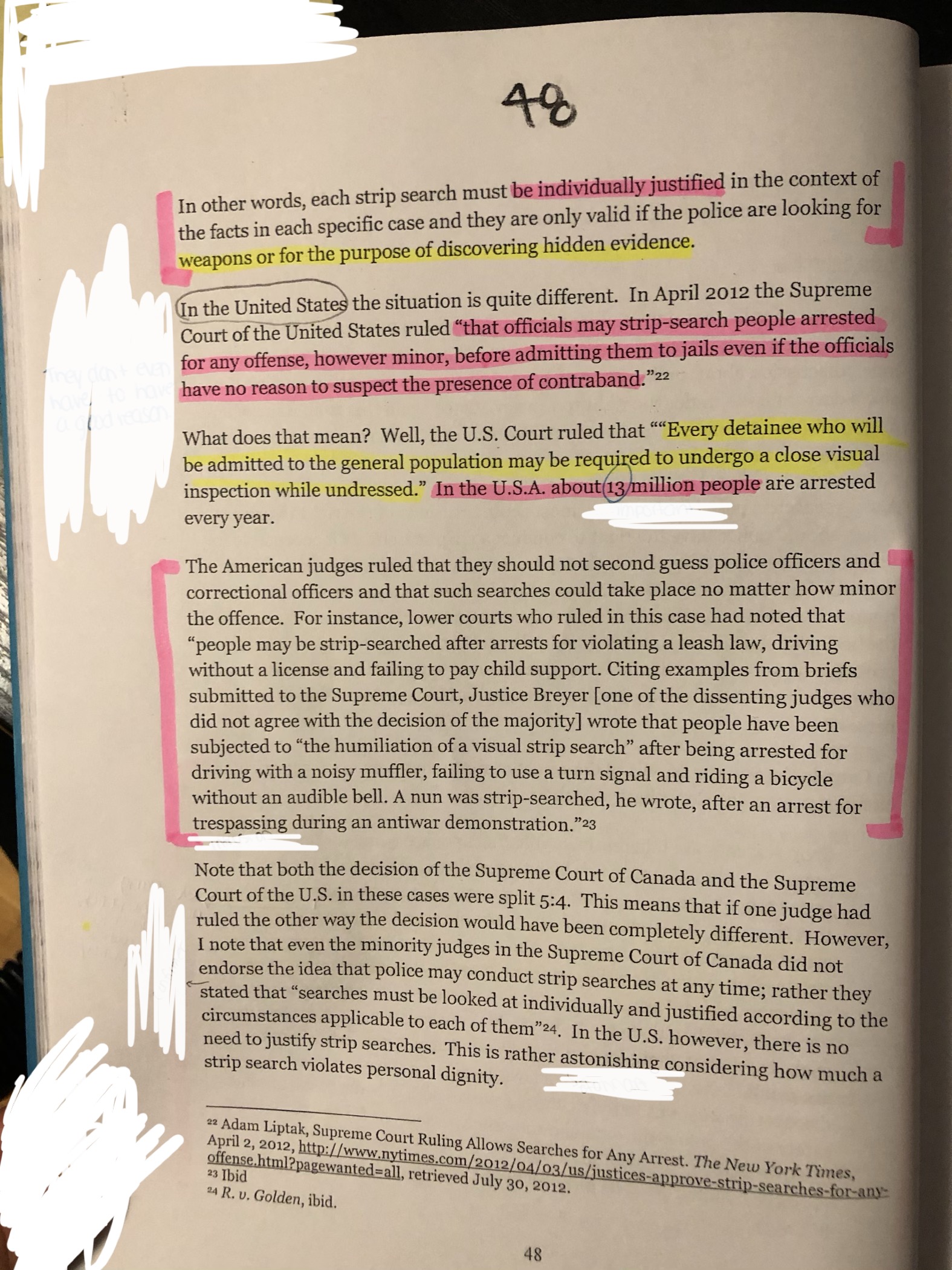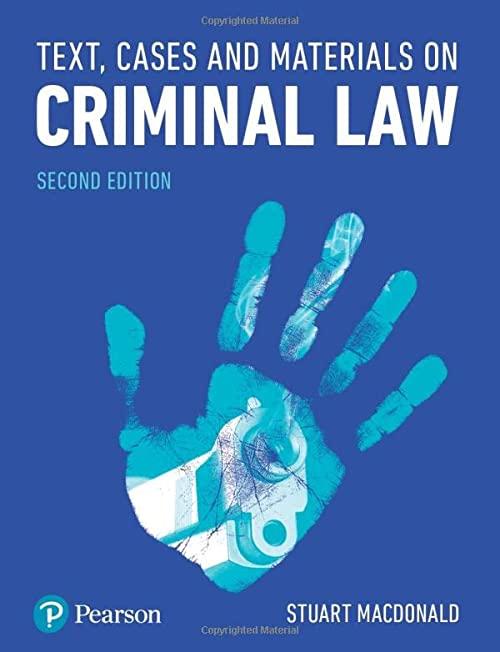Section 8 of the Charter protects everyone's right to be secure from unreasonable searches or seizures. Based on the reading in the course manual (joined in picturre starts at the buttom)
40 In other words, each strip search must be individually justified in the context of the facts in each specific case and they are only valid if the police are looking for weapons or for the purpose of discovering hidden evidence. In the United States the situation is quite different. In April 2012 the Supreme Court of the United States ruled "that officials may strip-search people arrested for any offense, however minor, before admitting them to jails even if the officials have no reason to suspect the presence of contraband."22 What does that mean? Well, the U.S. Court ruled that ""Every detainee who will be admitted to the general population may be required to undergo a close visual inspection while undressed." In the U.S.A. about(13/million people are arrested every year. The American judges ruled that they should not second guess police officers and correctional officers and that such searches could take place no matter how minor the offence. For instance, lower courts who ruled in this case had noted that "people may be strip-searched after arrests for violating a leash law, driving without a license and failing to pay child support. Citing examples from briefs submitted to the Supreme Court, Justice Breyer [one of the dissenting judges who did not agree with the decision of the majority] wrote that people have been subjected to "the humiliation of a visual strip search" after being arrested for driving with a noisy muffler, failing to use a turn signal and riding a bicycle without an audible bell. A nun was strip-searched, he wrote, after an arrest for trespassing during an antiwar demonstration."23 Note that both the decision of the Supreme Court of Canada and the Supreme Court of the U.S. in these cases were split 5:4. This means that if one judge had ruled the other way the decision would have been completely different. However, I note that even the minority judges in the Supreme Court of Canada did not endorse the idea that police may conduct strip searches at any time; rather they stated that "searches must be looked at individually and justified according to the circumstances applicable to each of them"24. In the U.S. however, there is no need to justify strip searches. This is rather astonishing considering how much a strip search violates personal dignity. 22 Adam Liptak, Supreme Court Ruling Allows Searches for Any Arrest. The New York Times, April 2, 2012, http://www.nytimes.com/2012/04/03/us/justices-approve-strip-searches-for-any offense.html?pagewanted=all, retrieved July 30, 2012. 23 Ibid 24 R. v. Golden, ibid. 48







